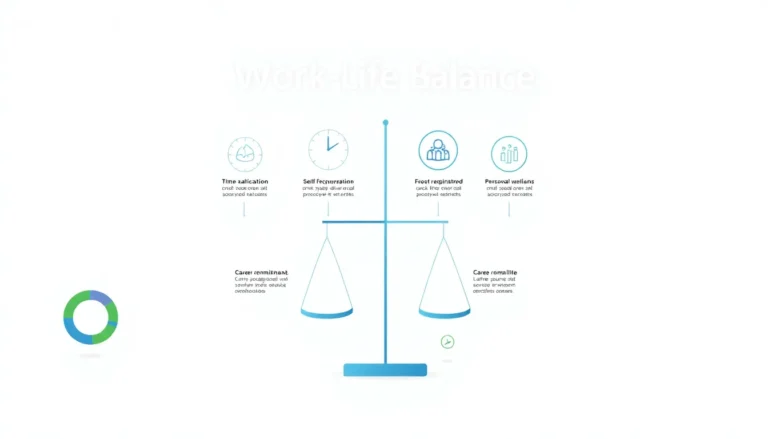Table of Contents
ToggleEver felt like you were talking to a wall? Well, in the world of interpersonal dynamics, an inward mindset might just be the wall. Shifting to an outward mindset isn’t just a psychological trend: it’s a transformative breakthrough that could redefine your relationships, both personal and professional. Picture it: clearer communication, stronger bonds, and yes, more humor in your daily interactions. If that sounds appealing, stick around: this article will unpack what an outward mindset is all about, why it’s crucial, and how any individual can embrace this refreshing approach to life.
Understanding Outward Mindset

An outward mindset focuses on seeing the world through the lens of others rather than solely from one’s own perspective. Picture this: someone who practices an outward mindset acts with the awareness that their actions impact the people around them. They understand that everyone has their own struggles and challenges, which paves the way for empathy and connection. In contrast, an inward mindset prioritizes self-interest and personal experience, often leading to misunderstandings and conflict. This fundamental shift in perception is essential for fostering positive relationships, whether at home or in the workplace.
The Importance of an Outward Mindset
Why should anyone care about cultivating an outward mindset? For starters, it enhances emotional intelligence. By recognizing the feelings and perspectives of others, individuals can engage more meaningfully. Communication improves, everyone knows passionate debates can sometimes spiral into misunderstandings. An outward mindset helps prevent that. When individuals adopt this approach, they contribute to a collaborative atmosphere that minimizes friction and amplifies cooperation.
Also, fostering an outward mindset can lead to increased creativity and innovation. Working in an environment where everyone feels understood and valued sparks new ideas. The ability to step outside one’s self-interest opens up a treasure chest of opportunities. It’s a win-win for everyone involved.
Key Principles of an Outward Mindset
What makes up an outward mindset? Several core principles define this approach:
Empathy
The first and perhaps the most crucial principle is empathy. Understanding that everyone has their own story creates room for compassion in interactions.
Accountability for Impact
Another essential principle revolves around owning the effects of one’s actions. It’s not merely about intentions: it’s also about the outcomes that stem from those intentions.
Mutual Benefit
Individuals should strive for solutions that benefit all parties involved. Thinking from a place of mutual interest creates win-win scenarios.
Openness to Feedback
An outward mindset encourages individuals to be receptive to feedback. Rather than becoming defensive, embracing constructive criticism enables growth and understanding.
Together, these principles form a robust framework for adopting an outward mindset.
How to Develop an Outward Mindset
Developing an outward mindset isn’t a flip-a-switch kind of deal: it requires intentionality and practice. Here are some steps to guide anyone on this journey:
Self-Reflection
The process begins with an introspective look. Individuals need to ask themselves, “How often do I consider the perspectives of others?” Self-awareness is key.
Active Listening
When conversing, practice active listening. This means paying attention, not just to respond but to truly understand the other person’s point of view.
Seeking Diverse Perspectives
Engaging with a variety of viewpoints can contribute to a more rounded perspective. Encourage conversations with people from different backgrounds and experiences.
Practicing Kindness
Sometimes, it’s the little things that lead to the biggest transformations. Simple acts of kindness can soften rigid mindsets and promote openness.
Coaching and Mentoring
Finding a mentor who embodies an outward mindset can provide guided learning. Coaching can pave the way for deeper understanding and quicker adaptations.
Applications in Personal and Professional Life
The applications of an outward mindset extend far and wide:
Personal Relationships
In personal relationships, adopting this mindset promotes stronger connections. Couples who embrace empathy tend to have more fulfilling and less conflicted interactions.
Workplace Dynamics
In professional settings, leaders who use an outward mindset create inclusive environments. Employees feel valued and empowered, leading to heightened morale and productivity.
Community Engagement
On a broader scale, an outward mindset plays a crucial role in community building. When individuals prioritize the collective good, social cohesion flourishes.
Challenges in Adopting an Outward Mindset
Even though its advantages, adopting an outward mindset can come with challenges. Some might resist change due to deeply ingrained habits of self-interest. Others may struggle with vulnerability, fearing that understanding others will undermine their own needs.
Time and consistency are factors that play crucial roles in overcoming these hurdles. It takes sustained commitment to rewire thinking patterns. Also, fostering a culture that values outwardness, be it at home or in organizations, can create collective momentum, making it easier for everyone to adopt this mindset.







